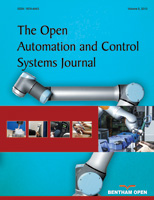 A former graduate student at the University of Colorado Denver has gained three retractions and two expressions of concern (EOC), following an institutional probe into his work.
A former graduate student at the University of Colorado Denver has gained three retractions and two expressions of concern (EOC), following an institutional probe into his work.
Last year, we reported on an investigation by the University of Colorado Denver into the research of Rajendra Kadam, which recommended retracting 10 papers. The report also flagged eight additional papers co-authored by Kadam whose data could not be validated, raising “concerns as to the scientific validity and integrity” of the material. A few months later, we reported on some of the notices — four retractions and an EOC — that had begun to appear for Kadam’s manuscripts.
We’ve since discovered more notices, bringing his total to seven retractions and three EOCs.
Kadam was once a prominent member in the lab of Uday Kompella, and often referred to by colleagues as the “golden boy,” according to the institution’s report. In 2012, he won a graduate student symposium award from the American Association of Pharmaceutical Scientists.
A University of Colorado Denver spokesperson told Retraction Watch: Continue reading U Colorado’s former “golden boy” up to 7 retractions




